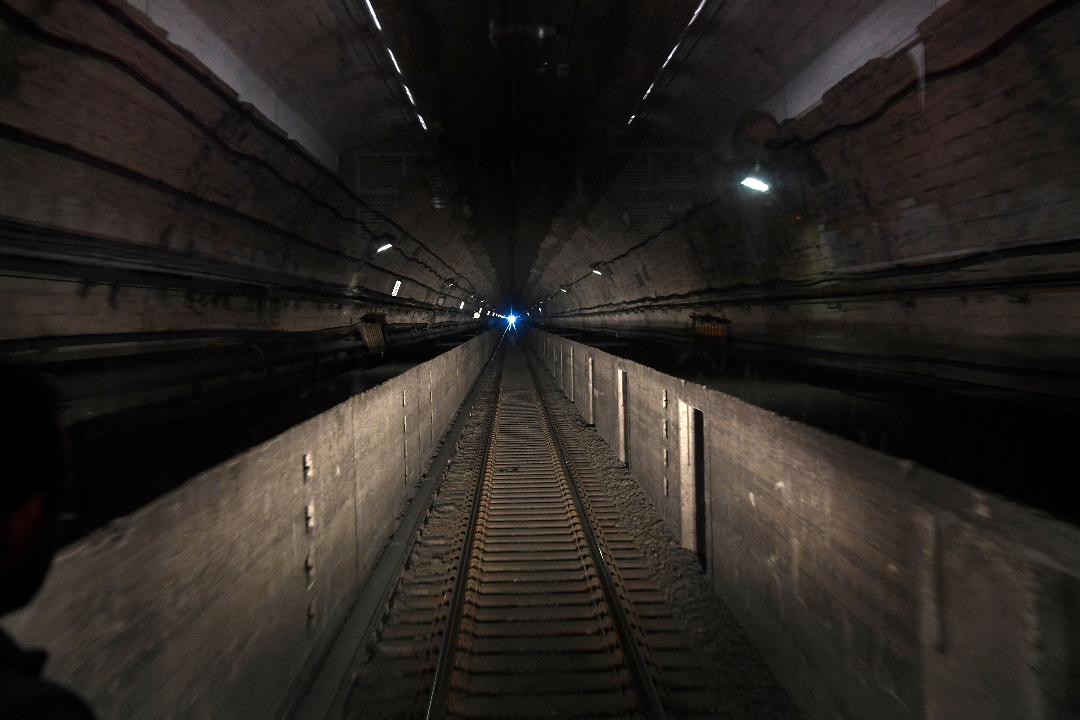New Hudson River rail tunnel in jeopardy because of Obama-era law

NORTH BERGEN, N.J. — Even if New York and New Jersey can come to an agreement with the Trump administration to pay for a new Hudson River rail tunnel, an Obama-era law threatens to hold up the money.
Both states must obtain certification by April 15, 2019, for their State Safety Oversight programs, which Congress required in a 2012 transportation bill to prevent and mitigate accidents on rail transit systems. Both states now remain short of achieving that goal.
If they fail to meet the deadline, they would be ineligible to not only receive money for the tunnel, but they also would forfeit hundreds of millions of dollars in federal transportation money annually to support their transit systems.
The tunnel, which actually has two tubes that carry eastbound and westbound trains, is considered one of the country's most important infrastructure projects. It carries 200,000 passengers a day from New Jersey into New York's Penn Station.
► Sept. 7: Trump to discuss Amtrak's Gateway tunnel with N.J., N.Y. lawmakers
► Sept. 5: Penn Station's 'Summer of Hell' ends, but work continues
► Aug. 31: Penn Station to resume full train service after major Amtrak repairs
The 108-year-old tunnel sustained significant damage from Superstorm Sandy in 2012.
At some point in the next decade, it may need to be taken out of service for critical repairs, stranding the Amtrak and NJ Transit passengers who depend on it and costing a region that generates $1.3 trillion in economic output — 9% of the value of all sales of goods and services across the USA.
But the safety oversight requirement could delay money for the tunnels, part of what's become known as the Gateway Project.
Only three states have achieved certification from the Federal Transit Administration for their safety oversight programs: Ohio, Minnesota and Utah.
While New Jersey has made some progress toward meeting the law's requirements, New York ranks near the bottom.
In a letter late last week to New York Budget Director Robert Mujica, Deputy Administrator K. Jane Williams of the Federal Transit Administration noted the state's lack of progress.
"We remain deeply concerned that New York is seriously behind in its State Safety
Oversight Agency certification process," she wrote.
The letter also appeared to walk back an agreement reached between the Obama administration and the two states' governors on splitting the cost for the $12.7 billion tunnel project.
But even if the two states are able to reach a new agreement with the Trump administration to pay for the project, any delay in compliance with the safety oversight requirement could delay the money.
► July 10: Penn Station chaos sends travelers scrambling for options
► April 27: Amtrak speeding up repairs at NYC's Penn Station
"If a state fails to obtain certification for its (State Safety Oversight) Program by the deadline, the Federal Transit Administration cannot obligate any funds to public transportation agencies throughout that state until certification is achieved," the agency states.
The federal agency could also withhold money each state counts on to support its transit systems every year. In New Jersey, that's more than $600 million. In New York, that's more than $1.5 billion.
Joseph Morrissey, a spokesman for the New York State Department of Transportation, said the state has been engaged in an "ongoing dialogue" with federal officials over the requirement.
"We remain confident that the State Safety Oversight program will be recognized as fully compliant well before the April 15, 2019, certification deadline," he said.
A spokesman for the New Jersey Department of Transportation couldn't immediately say whether the state would meet the same deadline, citing preparations for a winter storm.
An Amtrak spokesman declined to comment.
In September testimony before a legislative oversight committee in Trenton, N.J., John Porcari, the interim executive director of the Gateway Development Corp., gave lawmakers an idea of what would happen if the new tunnel doesn't get built.
He described a "nightmare scenario" that would require shutting down one of two tracks in the existing tubes, reducing its capacity from 24 trains an hour to six.
"The implications for the region's economy — and New Jersey's economy in particular — would be devastating," Porcari testified. "It's a situation we cannot allow to happen."
President Trump campaigned on a promise of improving the nation's infrastructure. It isn't clear if the Gateway tunnel will be part of that. The White House is expected to roll out a more detailed infrastructure proposal in the coming weeks.
Follow Curtis Tate on Twitter: @tatecurtis
A view of the New Jersey-bound tunnel under the Hudson River as it leaves New York City's Pennsylvania Station in February 2009. The tunnel carries 200,000 passengers a day from New Jersey. (Photo: Robert Deutsch, Paste BN)
.